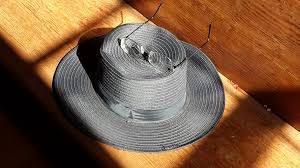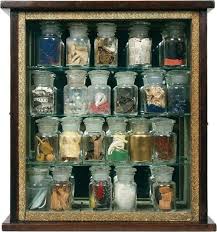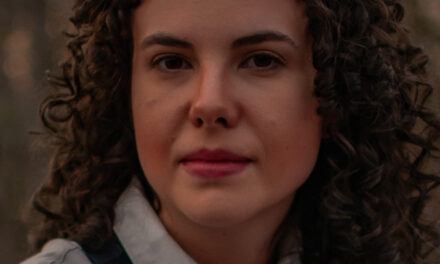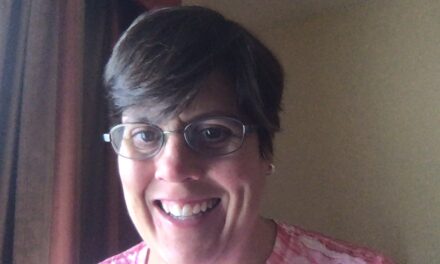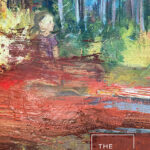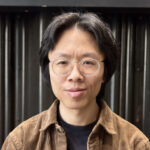[Editor’s Note: Today’s miCRo is a special New Year’s treat; we’ll be back with more short, tasty miCRo pieces later in January. Happy New Year!]
Assistant Editor Caitlin Doyle: In “new year’s poem,” G.C. Waldrep engages with the work of Joseph Cornell, a visual artist known for his surrealist-influenced assemblages that incorporate found materials. Waldrep’s language draws its tone and tenor from Cornell’s famed “shadow boxes,” square wooden frames fronted with glass and filled with disparate objects. In particular, Waldrep gestures toward a series of well-known Cornell “shadow boxes” that contain bottles of varying sizes, shapes, and colors, each one filled with different contents and suggestive of an apothecary shop or pharmaceutical display: “… the breath ticks / all day & night / in the extravagant pharmacy / plush with oil.”
Waldrep’s “new year’s poem” acts as a literary “shadow box” of sorts, a linguistic sculpture at once bound by its own sparse materials and full of expansive possibilities. Part ekphrasic poem, part ars poetica, and part lingual dreamscape (interestingly, Waldrep says that he was reading Joseph Cornell’s dream-diary entries when “new year’s poem” started forming in his mind), this piece spurs us to make associative and sonic connections while it refuses to offer any hints of paraphrasable meaning. Like museumgoers getting so close to a Cornell box that they almost bump their noses on the glass, we want to fully access the interior of “new year’s poem,” yet we recognize that our inability to do so is part of the art’s mysterious pull.
“new year’s poem”
(after Joseph Cornell)
marked “favorite thing” & “repossessed” patience stirs its light-bearing scale against which the breath ticks all day & night in the extravagant pharmacy plush with oils Patience, the dumb laths lisp, their winter dialect derived from that of casks rhymed with healing’s plasmic schist the church of the eye demands its wax as Patience (from its cage of moths) taps again at the green plate marked “fatal folly,” “white bruise,” “liniment for czars”—
G.C. Waldrep’s most recent books are a long poem, Testament (BOA Editions, 2015), and a chapbook, Susquehanna (Omnidawn, 2013). With Joshua Corey he edited The Arcadia Project: North American Postmodern Pastoral (Ahsahta, 2012). His new collection, feast gently, is due out from Tupelo Press in 2018. He lives in Lewisburg, Pennsylvania, where he teaches at Bucknell University, edits the journal West Branch, and serves as editor-at-large for The Kenyon Review.
For more miCRo pieces, CLICK HERE.


